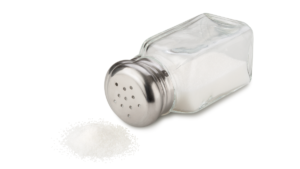
In today’s fast-paced world, where convenience often compromises nutritional quality and consistency, many of us turn to dietary supplements to fill in the gaps. Whether it’s due to busy schedules, dietary restrictions, or simply wanting to ensure optimal health, there’s no doubt that nutritional supplements have become increasingly popular. But with shelves overflowing with options, how do you choose the best supplement for your individual needs? In this guide, we’ll navigate the maze of supplements, discussing common choices, their reliability, and offering advice on how to prioritize dietary choices.
Understanding Nutritional Supplements:
Nutritional supplements come in various forms, including vitamins, minerals, herbal extracts, and specialty supplements targeting specific health concerns. While they can be beneficial for some, it’s essential to recognize that they are meant to complement, not replace, a balanced diet. Before incorporating any supplement into your routine, it’s wise to consult with a healthcare professional, especially if you have underlying health conditions or are taking medications.
Common Nutritional Supplements:
-
Multivitamins
These are perhaps the most widely used supplements, offering a combination of essential vitamins and minerals. While they can be a convenient way to ensure you’re meeting your daily requirements, it’s crucial to choose a high-quality multivitamin with optimal levels of nutrients and minimal fillers or additives.
-
Omega-3 Fatty Acids
Omega-3s, found in fish oil supplements, are renowned for their heart-healthy benefits and anti-inflammatory properties. Look for supplements that contain both EPA and DHA, the two primary types of omega-3 fatty acids, and consider factors like purity, freshness, and sustainability when selecting a product.
-
Protein Powders
Popular among fitness enthusiasts, protein powders are a convenient way to boost protein intake, support muscle recovery, and aid in weight management. Whey, casein, and plant-based options like pea or soy protein are available, each with its unique benefits and considerations.
-
Vitamin D
Many people have inadequate levels of vitamin D, especially those who live in regions with limited sunlight or spend most of their time indoors. Vitamin D supplements can help support bone health, immune function, and mood regulation. Look for vitamin D3, the most bioavailable form, and consider getting your levels tested to determine the appropriate dosage.
-
Probiotics
Probiotic supplements contain beneficial bacteria that support gut health and digestion. They may also have implications for immune function, skin health, and mood. When choosing a probiotic, opt for a product with multiple strains and a high CFU (colony-forming units) count to ensure potency.
Assessing Reliability of Nutrition Supplements:
 While the supplement industry is regulated to some extent, it’s essential to approach product claims with a critical eye. Not all supplements are created equal, and some may contain contaminants, inaccurate labeling, or ineffective ingredients. To ensure reliability:
While the supplement industry is regulated to some extent, it’s essential to approach product claims with a critical eye. Not all supplements are created equal, and some may contain contaminants, inaccurate labeling, or ineffective ingredients. To ensure reliability:
- Research Brands: Look for reputable brands with a history of quality and transparency. Check for third-party certifications like NSF International or USP, which indicate that the product has undergone testing for purity and potency.
- Read Reviews: User reviews can offer valuable insights into a product’s effectiveness and any potential side effects. However, be wary of biased or exaggerated testimonials and prioritize reviews from reputable sources.
- Check Ingredients: Take the time to scrutinize the ingredient list and avoid supplements with unnecessary fillers, artificial colors, or preservatives. Look for products with minimal additives and focus on high-quality, bioavailable nutrients.
Prioritizing Diet over Supplements:
While supplements can be helpful for filling nutrient gaps, they should not be a substitute for a balanced diet rich in whole foods. Whole foods provide a wide array of vitamins, minerals, antioxidants, and phytonutrients that work synergistically to promote health and prevent disease. Here are some tips for prioritizing dietary choices:
- Eat a Variety of Foods: Aim to include a diverse range of fruits, vegetables, whole grains, lean proteins, and healthy fats in your diet to ensure you’re getting a broad spectrum of nutrients.
- Focus on Nutrient-Dense Foods: Prioritize foods that are rich in essential nutrients, such as leafy greens, berries, nuts, seeds, and fatty fish. These foods provide more than just isolated nutrients; they offer a multitude of health-promoting compounds.
In the quest for optimal health, nutritional supplements can be valuable tools for supporting overall well-being. However, it’s essential to approach supplement selection with caution, ensuring reliability, and prioritizing dietary choices whenever possible. By focusing on a balanced diet rich in whole foods and using supplements strategically to fill specific nutrient gaps, you can create a foundation for long-term health and vitality. Remember, there is no one-size-fits-all approach to nutrition, so listen to your body’s needs and consult with a healthcare professional for personalized guidance.
If you want more guidance on nutrition and what you need to do to break free from Yo-Yo dieting or establish a healthy eating pattern, email Jalpa to set up a consultation!
Jalpa is a registered dietitian and nutritionist with a Master’s degree in Health & Nutrition from Brooklyn College, CUNY in New York. She also holds a Certificate of Training in Adult Weight Management through the Academy of Nutrition & Dietetics, CDR.
Related Articles:




 Watching sodium intake is essential nutrition hack for men’s heart health, as excessive sodium consumption can contribute to high blood pressure and increase the risk of heart disease. Here are some practical tips to help Dad monitor and reduce his sodium intake:
Watching sodium intake is essential nutrition hack for men’s heart health, as excessive sodium consumption can contribute to high blood pressure and increase the risk of heart disease. Here are some practical tips to help Dad monitor and reduce his sodium intake:

 While prenatal diet should be more individualized and tailored for individual pregnancy, here are some must have’s to nourish our moms-to-be:
While prenatal diet should be more individualized and tailored for individual pregnancy, here are some must have’s to nourish our moms-to-be:











 3. Controlling Diabetes through Diet
3. Controlling Diabetes through Diet 3. Weight Management and Exercise
3. Weight Management and Exercise

 Deciphering Food Labels: What to Look For
Deciphering Food Labels: What to Look For

 So, make a list of a few protein sources you like, a few carb sources, and a few fat sources. Use these to piece meals together. You can even bulk prep, and save time as well. For example, prepare a large batch of shredded chicken and ground turkey. Don’t season it until you’re ready to eat – that way, you can change the seasonings or sauce for each meal and not have to eat the exact same thing every day. Next, prep a large batch of rice or sweet potatoes, and have some tortillas on hand. For your fat sources, you could use olive oil and avocados. Now that all of these macronutrients are prepped, you can throw dinner or lunch together in a matter of minutes. And you can mix and match so that you’re not getting bored with what you’re eating. One day can be ground turkey tacos with avocado, one day can be shredded chicken tacos, and one day can be ground turkey rice bowls with any veggies that you like. If you stick to bulk prepping the three main macronutrients, you can eat very healthily on a budget.
So, make a list of a few protein sources you like, a few carb sources, and a few fat sources. Use these to piece meals together. You can even bulk prep, and save time as well. For example, prepare a large batch of shredded chicken and ground turkey. Don’t season it until you’re ready to eat – that way, you can change the seasonings or sauce for each meal and not have to eat the exact same thing every day. Next, prep a large batch of rice or sweet potatoes, and have some tortillas on hand. For your fat sources, you could use olive oil and avocados. Now that all of these macronutrients are prepped, you can throw dinner or lunch together in a matter of minutes. And you can mix and match so that you’re not getting bored with what you’re eating. One day can be ground turkey tacos with avocado, one day can be shredded chicken tacos, and one day can be ground turkey rice bowls with any veggies that you like. If you stick to bulk prepping the three main macronutrients, you can eat very healthily on a budget.  By buying food in bulk, and cooking it at home, you’ll be able to stick to your budget but still enjoy healthy food. With the plan listed out in tip #1, cooking at home doesn’t have to be time consuming or even hard. You don’t need master cooking skills to bulk prep rice and meat. The key is making food you like, and making it taste good. Keep the base ingredients simple – protein, carbs, and veggies – and then spice up each meal with different low calorie sauces or spices. Making it flavorful will keep you from getting bored with eating at home, which in turn, keeps your budget in check.
By buying food in bulk, and cooking it at home, you’ll be able to stick to your budget but still enjoy healthy food. With the plan listed out in tip #1, cooking at home doesn’t have to be time consuming or even hard. You don’t need master cooking skills to bulk prep rice and meat. The key is making food you like, and making it taste good. Keep the base ingredients simple – protein, carbs, and veggies – and then spice up each meal with different low calorie sauces or spices. Making it flavorful will keep you from getting bored with eating at home, which in turn, keeps your budget in check.  To get the best bang for your buck, you need to
To get the best bang for your buck, you need to 

 Protein transports nutrients throughout the body, regulates fluid balance, and carries enzymes that are essential for bodily functions such as digestion and blood clotting. Important, right?! A huge role protein has is acting as a messenger for hormone function. Protein amino acids tell the body when to uptake sugar into the cell (insulin), and when to build more tissue, including bone (human growth hormone).
Protein transports nutrients throughout the body, regulates fluid balance, and carries enzymes that are essential for bodily functions such as digestion and blood clotting. Important, right?! A huge role protein has is acting as a messenger for hormone function. Protein amino acids tell the body when to uptake sugar into the cell (insulin), and when to build more tissue, including bone (human growth hormone).  Carbohydrates often get a bad rap for making people gain weight. But that is only true if they are overconsumed. If you are an athlete or have a very active job such as a nurse or construction worker, carbs will fuel the energy you need to perform well. Focus on high fiber, unprocessed carbs for the best results.
Carbohydrates often get a bad rap for making people gain weight. But that is only true if they are overconsumed. If you are an athlete or have a very active job such as a nurse or construction worker, carbs will fuel the energy you need to perform well. Focus on high fiber, unprocessed carbs for the best results. 




 Essential Nutrient: Omega-3s
Essential Nutrient: Omega-3s